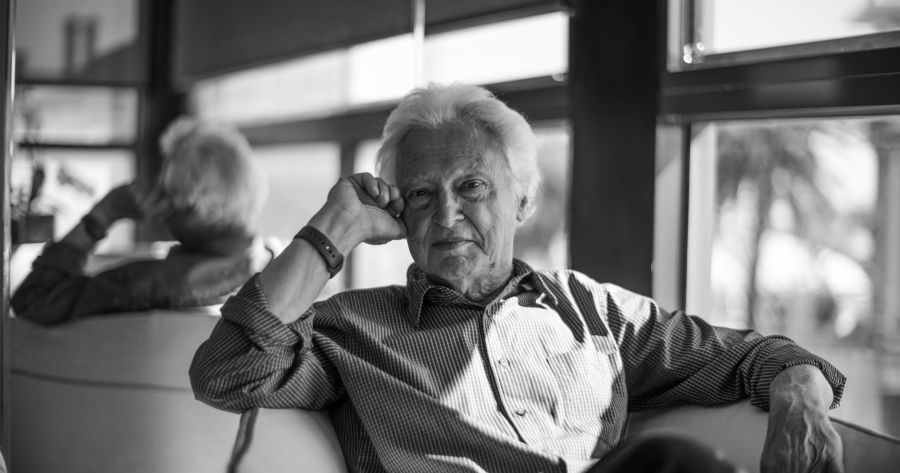
- Free Article: No
- Contents Category: Commentary
- Custom Article Title: The irreducible humanity of others: What philosophy has meant to me
- Review Article: No
- Article Title: The irreducible humanity of others
- Article Subtitle: What philosophy has meant to me
- Online Only: No
- Custom Highlight Text:
Some readers will know me as the author of Romulus My Father (1998). Romulus is not a book of philosophy, but it was obviously written by a philosopher profoundly affected by painful events in his childhood and the influence on him of his father and his father’s dear friend Pantelimon Hora, who helped raise him. Many people who have read the book said that it is obvious why I became a philosopher.
- Featured Image (400px * 250px):
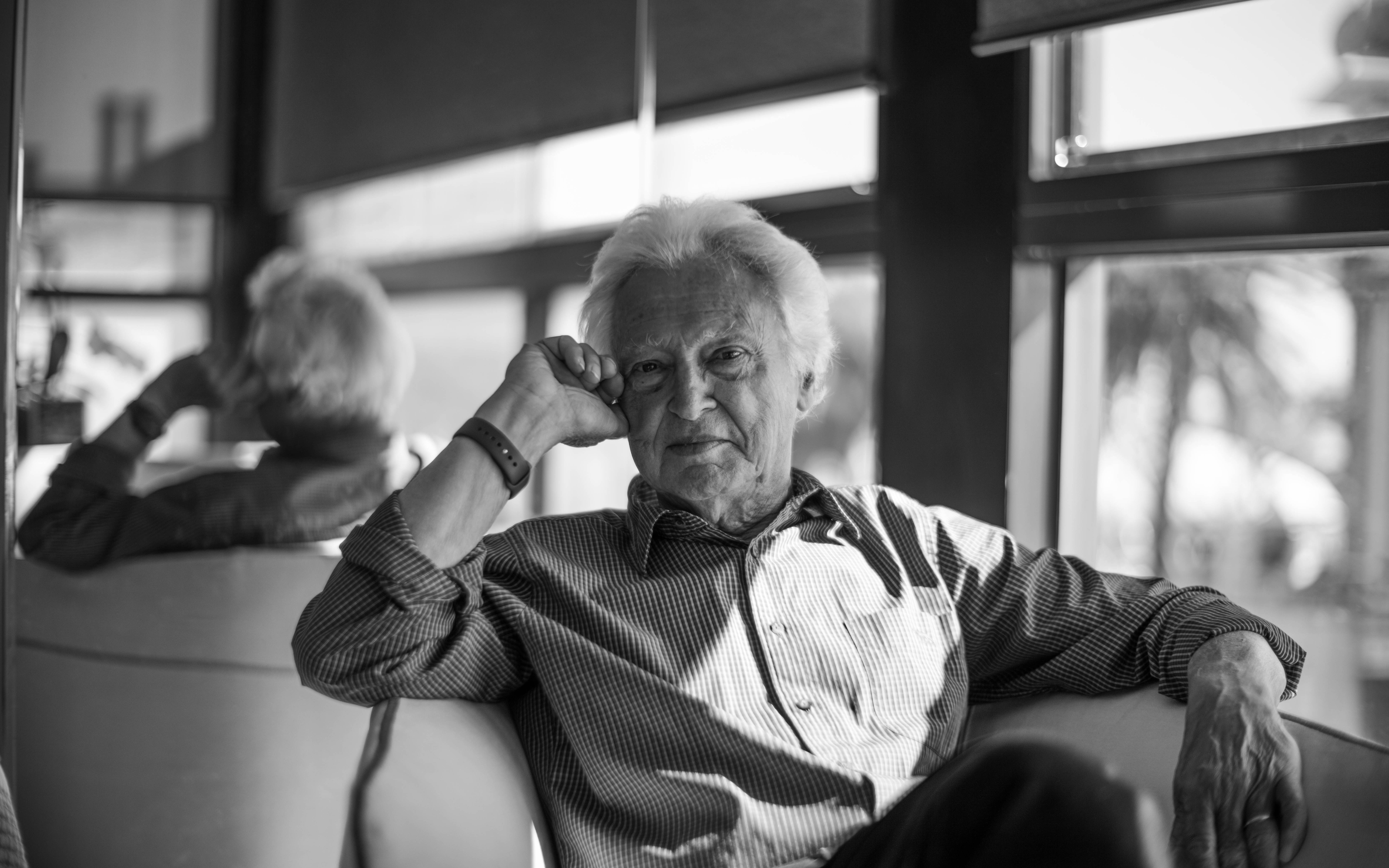
- Alt Tag (Featured Image): ‘The irreducible humanity of others: What philosophy has meant to me’ by Raimond Gaita
Issac Bashevis Singer said that ‘every writer needs an address’. I believe this is true of all thinkers in whose work thought and feeling cannot be separated. Such thinkers are inescapably – because their subject matter requires them to be – in medias res. After Romulus, some philosophers thought they had located my address, believed it to be integral to the spirit and content of my philosophical work, and believed that is how it should be. Others think that philosophers should have no address; that they should aspire to see the world as from no place within it. That marks an unreconcilable disagreement. Moral philosophy, and nearly all moral thinking, is personal, although – and this will strike some as being close to a contradiction – it is also a robust effort to try to see things as they are rather than as they appear – an effort, in other words, oriented to truth.
When Romulus was made into a film, philosophers often screened it after I had given a paper and asked if I would speak about it. Such is the glamour of film, I often agreed: it enabled me to reflect on the philosophical influence on me of my father and Hora. I also reflected on what I was doing in writing the book – especially what truth, truthfulness, and being true to the spirit of something amounts to in narrative and in transposition to film. Such reflections produced After Romulus (2011).
In Romulus, I write of my father and Hora:
I have never known anyone who lived so passionately, as did these two friends, the belief that nothing matters so much in life as to live it decently. Nor have I known anyone so resistant and contemptuous, throughout their lives, of the external signs of status and prestige. They recognised this in each other, and it formed the basis of their deep and lifelong friendship.
The intensity with which my father and Hora lived that moral affirmation had a profound effect on me as a human being and as a philosopher. It is tempting to think that morality is a way of organising for our benefit, in rules or in the development of virtues, facts whose importance in almost every human life is evident to anyone with a reasonable intelligence and understanding of human nature. Living with my father and Hora gave me a firm, though unreflective, sense that though the content and nature of morality was plainly answerable to such facts, it could not be explained fully by them. It struck me as being on a different plane, not only more important than anything else, but also important in a uniquely different way. Resistance to reductionism has marked my work. Here is an example from Justice and Hope (2024):
In addition to suffering extreme physical and psychological harm, victims of torture also suffer the evil of what is done to them, the terrible wrong of it, as a distinct and irreducible source of their torment. It is an element of their torment that cannot be explained by elaboration on their physical and psychological suffering and their pained disbelief that anyone could be so untouched by the natural sympathy that most people have for the suffering of their fellows.
My father and Hora’s sense of morality enabled to me to understand, again unreflectively, how terrible it can be to be a wrongdoer – awful and in a way worse than shame. Reflecting on remorse became central to my work. I do not think of remorse as an emotion that follows the realisation that one has wronged another, serving the practical function of encouraging one to repudiate the deed. I think of it as a bewildered, horrified realisation of what one has become merely because of what one has done and how one has made one’s victim suffer. Remorse is one of the most sober moments of the moral life, when one becomes fully aware of the inalienable preciousness of the person one has wronged, fully aware of their reality as ethical beings. The unique character of remorseful suffering, when it is not corrupted by various forms of self-absorption and self-pity, shows in the fact that remorse is alone amongst the forms of human suffering in that it cannot be consoled by knowing that others are in the same predicament. Seeking consolation for remorse in a fellowship of the guilty is material for satire but not for moral psychology.
All this may sound distastefully severe. My father was severe, but he was not judgemental. He was severe when he believed it was necessary to honest conversation, which he prized, and more generally to humane interchange. His attitude to the deeds he judged severely could range from anger through to the many tones of rebuke, to sorrow and, strange though it may sound, a resigned matter-of-factness. The belief that a proper response to wrongful conduct must involve a rebuke and an expression of blame is not a conceptual truth about morality: it is a moralistic distortion of it. That is why I say in Romulus:
We sometimes express our most severe judgment of other people by saying that we will never again speak to them. I never heard my father say that nor can I imagine him saying it. That, perhaps more than anything else, testifies to his unqualified sense of common humanity with everyone he met.
Now, when indignation runs hot in many people and accusations of complicity are levelled with hair-raising ease, it is instructive to reflect on the inseparable combination, as it existed in my father, of compassion, severe truthfulness, a sometimes-sorrowful sense of a common humanity, and not turning one’s back on anyone.
Having lived with my father’s authoritative example of this, my philosophical work became, in part, a form of witness. Jean Curthoys, in her review of A Sense for Humanity: The ethical thought of Raimond Gaita (2014), edited by Craig Taylor with Melinda Graef, understood this with admirable clarity:
The profound influence of father on son became apparent with the publication of Romulus, My Father (1998), but it was only in After Romulus (2011) that we begin to see that the ‘moral genius’ here (to quote a homeless man at one of Gaita’s book readings) is, in the first instance, not Raimond, but Romulus. And so we should see it, for the younger Gaita has consistently emphasised that it is in the nature of goodness to reveal the uniquely individual and irreducible humanity of others. The more we are moved by Romulus and his world, and the less we are dazzled by Gaita’s depth and subtlety of thought, the more the latter’s philosophy succeeds on its own terms. It is a mark of that success that so many … accept Romulus as the ground of that thought and are comfortable with the idea that a barely educated blacksmith of peasant background, a man who once contemplated murder and who never fully recovered from the psychosis to which he succumbed in mid-life, had a depth of understanding which, when presented in the language of moral philosophy, put that profession to shame (as the endorsements to the second edition of Good and Evil attest).
A.E. Taylor dedicated his book, The Faith of a Moralist, to ‘lovers of Plato, the quick and the dead’. ‘That’s a fine way,’ I wrote in Justice and Hope, ‘to address a community that includes the dead among the living – the dead made present to us through our reflective engagement with them, and sometimes, as Taylor says, our love for them.’ Because we’re given so many things to love, our engagement with great thinkers and artists who may have worked thousands of years ago enables us to live joyously with them in a kind of extended continuous present. For me, that community extends well beyond philosophers, but the most important philosophers to me are Socrates, Plato, Augustine, Kant, Kierkegaard, Descartes, Wittgenstein, Weil, and (though she is not of the same stature) Arendt. The pleasure of my life with them has been deepened by teaching them for many years. Few things give us pleasure greater than sharing what we love. I acknowledge that the writers and thinkers on my list are all Western. That is a fact of my history. It could have been different, and I wish it had been, but that doesn’t diminish my gratitude that love brought me into their company.
Readers who know me as primarily a moral philosopher who often writes from his life might find it odd that I number Descartes amongst my companions. He is, after all, the philosopher who is most often at the back of people’s minds, even if they have not heard of him, when they say to their children who intend to study philosophy: ‘Do you really want to spend good money wondering whether you’re awake or dreaming?’
Teaching his Meditations for more than thirty years has been a great philosophical pleasure. With Wittgenstein’s help, I was able to see that his ‘astonishment that there exist no certain marks by which the state of waking can ever be distinguished from sleep’ could take one to the deepest problems of philosophy. Important sections of the chapters ‘Fearless Thinkers and Evil Thoughts’ in Good and Evil (1991) and ‘Forms of the Unthinkable’ in A Common Humanity (1998) emerged from those lectures. In those chapters I develop an account of the conditions that make sober judgement possible. Judgement is the most important of the intellectual virtues. It enables facts to become evidence and evidence to become knowledge; it prevents both realism and justified scepticism from degenerating into cynicism, and open-mindedness from declining into gullibility. If it fails, the other virtues will not count for much. It prevents one from ‘being out of touch with reality’ (such an interesting concept). In essays on Donald Trump in The Conversation in 2016 and Justice and Hope, I argue that it is primarily because he has eroded the conditions of sober judgement, rather than because he is incorrigibly mendacious, that Trump’s subversion of political discourse is so dangerous.
Though I have had an ambivalent, sometimes tense, relation to the academy, I have been wonderfully fortunate in my years in the it. I’ve been permitted to write as eccentrically as I felt the need and to publish with whom I wanted without fear of threatening my department’s research ratings. (This was at a time in the United Kingdom when every four years a nationally independent committee of your peers judged the quality of your work, unconcerned about who published it.) And I have been privileged to work with philosophers of inspiring purity. Their purity in the service of the academic form of the life of the mind was made possible by the fact that the concept of a vocation still had life in it. It was displaced by the relatively mediocre concept of a profession and, worse, a career. Thinking about what it really means to be a teacher, a nurse, a doctor or a craftsperson can deepen without limit when it is done under the concept of a vocation. It makes sense to say – I mean that the concept permits one to say it – that an entire age has failed to understand what it is to have a vocation as a teacher, but it makes no sense to say that of a career. If it seems to make sense to say it of a profession, whose ethical character can (I exaggerate only a little) be decided by a committee, it is because most of the professions were once practised as vocations. I am dismayed by the degradation of the institutions called universities, especially by the fact that in most of them teaching is looked down upon.
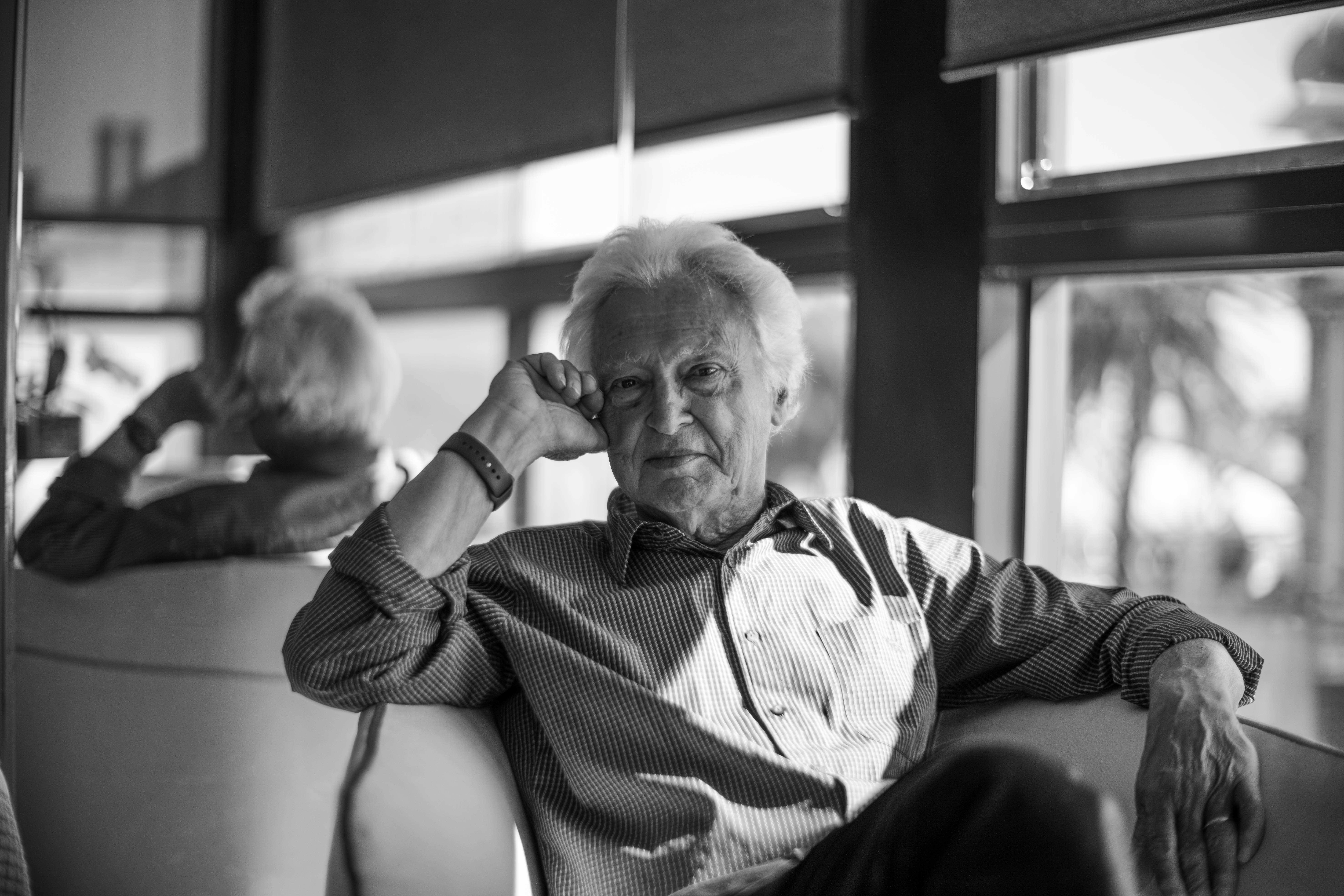 Raimond Gaita (photograph by Mark Raphael Baker)
Raimond Gaita (photograph by Mark Raphael Baker)
Postgraduate students sometimes ask me whether they should seek an academic post. Often, I reply that it would likely break their hearts for so long as they retain their ideals. If it doesn’t, it would probably be because they have forsaken their ideals, which would be worse. Nonetheless, for whatever reason young people go to the institutions called universities, they need and deserve to have teachers who love their subject and who can show them what that can mean. The teachers whose hearts are most in danger of breaking are the ones most likely to do it.
For twenty years, I organised a successful public lecture series and I’ve written widely for audiences beyond philosophers, but I’ve never thought my public writings and lectures to be essential to my understanding of what it is to be a philosopher, or even for me to be a philosopher. I’ve certainly never thought of it as an obligation that could be derived by reflecting on what it is to be a moral or political philosopher. My public commitment has been as a citizen who is a philosopher and in whose work that inevitably will show, for good and for ill. I’ve written only when I believed I had something to say that others were not saying and when I believed conceptual issues were at stake. For example: justice as the recognition of the humanity of persons or peoples; forms of racism that find it literally unintelligible that victims of racial denigration could have inner lives of any depth; collective responsibility as a form of shame, distinguished from collective guilt as sometimes a form of moral responsiveness to what one has been caught up in through no fault of one’s own; and truth as a need of the soul even in politics.
Growing up in the harshly beautiful countryside of central Victoria had a profound effect on my sensibility which could not fail to show in the content, style, and spirit of my philosophy. Insofar as I have a distinctive voice many of its registers developed there. It is hard for me to explain this.
When I was eleven, I had an epiphany on a late summer afternoon when – as Genevieve Lloyd put it in Philosophy, Ethics and A Common Humanity: Essays in honour of Raimond Gaita (2011), edited by Christopher Cordner – I ‘went to shoot rabbits but stumbled on transcendence’. ‘For the first time in my life,’ I say in Romulus, ‘I was alive to beauty, receiving a kind of shock from it.’ That planted in me a seed of a love of the world mediated by its natural beauty, which, when it grew, became fundamental to the spirit of my entire philosophical work.
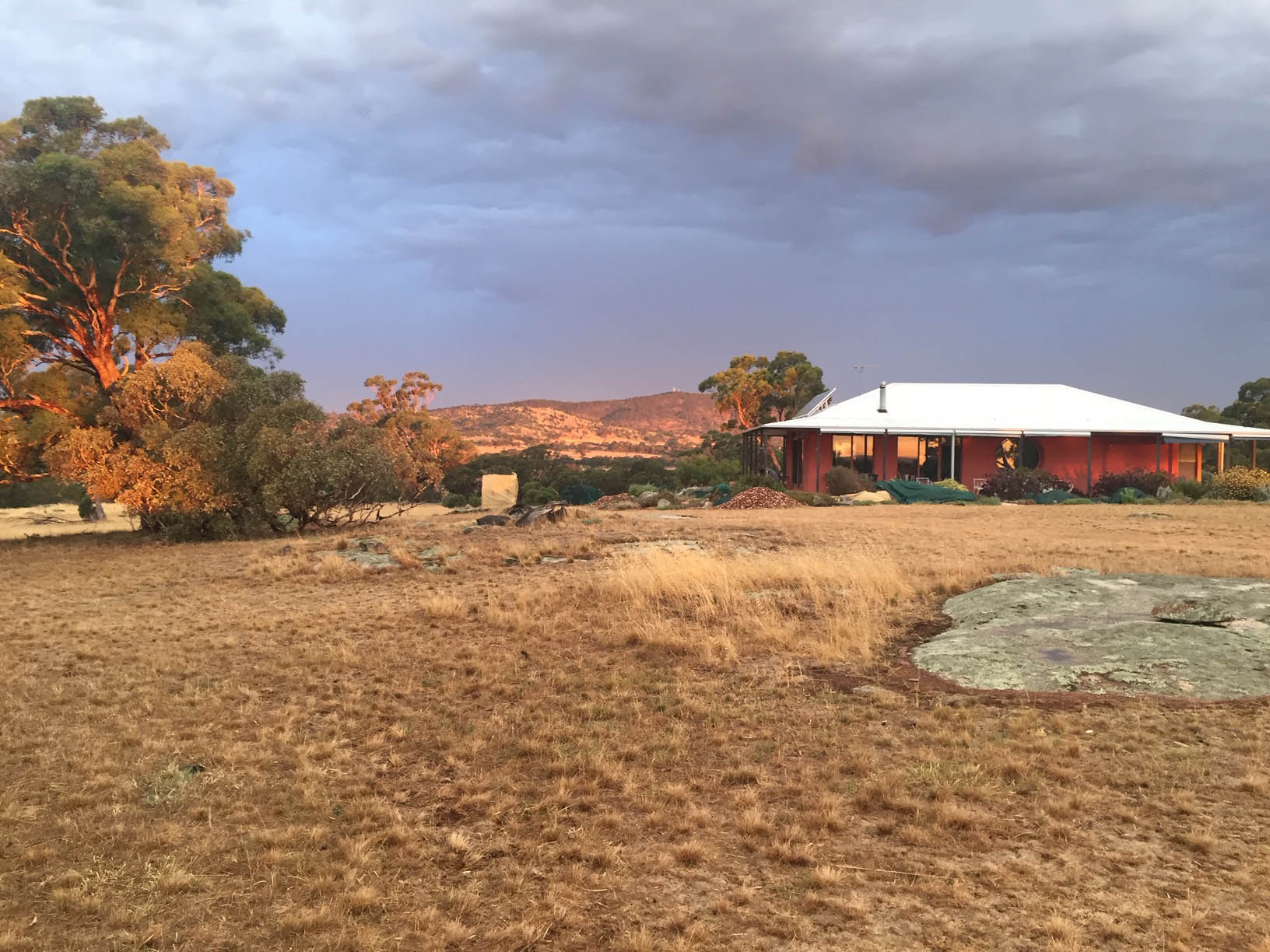 Raimond Gaita’s house, Shalva, in Central Victoria (courtesy of the author)
Raimond Gaita’s house, Shalva, in Central Victoria (courtesy of the author)
I went to boarding school for my secondary schooling. While I was there, my father, alone in our broken-down shack, stricken by grief and remorse after my mother had killed herself, betrayed by a woman he had intended to marry, went mad. He tried to kill himself but was saved by the chance visit of a farmer who came to ask a favour of him, only to find him barely conscious after taking a large overdose of a common psychiatric drug. I will quote a passage from Romulus in which I describe my reaction to seeing my father for the first time in a psychiatric hospital. In it, I try to convey how my response to the complex beauty of the countryside, not just to the eye but to all the senses, became integrated in my sensibility with attitudes and thoughts that were to shape my life, including my philosophical life.
The hospital represented a foreign world to me, one whose beliefs were shaped by ideas I instinctively felt to be in conflict with those that had enabled me to understand the events of my childhood. I could no longer see my father’s illness just from the perspective of our life at Frogmore. Strange though it may sound, my sense of that life, of the ideas that informed it, was given intensity and colour by the light and landscape of the area. The hills looked as old as the earth, because they were rounded by millennia and also because the grey and equally rounded granite boulders that stood among the long yellow grasses, sharply delineated at all times of day by the summer sun, made them look prehistoric. More than anything, however, the glorious, tall, burnt yellow grasses (as a boy they came to my chest and sometimes over my head) moving irregularly against a deep blue sky, dominated the images of my childhood and gave colour to my freedom and also to my understanding of suffering. In the morning they inspired cheerful energy of the kind that made you whistle; at midday, in partnership with an unforgiving sun and alive with insects and other creatures, they intimidated; but in the late afternoon, towards dusk, everything was softened by a light that graced the area in a melancholy beauty that could pierce one’s soul as it did mine on the day I went in search of rabbits.
Religion, metaphysics or the notions of fate and character as they inform tragedy, are suited to that light and landscape. The assumptions of psychiatric medicine, affected as they are by psychiatry’s debunking of metaphysics in its long struggle to become accepted as a science, were not. Life at Frogmore, in that landscape and under that light, nourished the sense, given to me by my father and Hora, of the contrast between the malleable laws and conventions made by human beings to reconcile and suit their many interests, and the uncompromising authority of morality, always the judge, never merely the servant of our interests.
For that reason tragedy, with its calm pity for the affliction it depicts, was the genre that first attracted my passionate allegiance: I recognised in it the concepts that had illuminated the events of my childhood. They enabled me to see Mitru, my mother, my father and Vacek, living among his boulders, as the victims of misfortune, in their different ways broken, but never thereby diminished.
Obviously, I could not have conceptualised my experience like that when I was a boy of fifteen, but that does mean that my articulation of it thirty-six years later was necessarily a fabrication. In A Sense of Humanity, J.M. Coetzee wrote: ‘Gaita … clearly owes a great deal to Greece – to Greek literature even more than to Greek systematic philosophy. The confluence in him of Greek and Christian traditions is attested by his fellow-feeling with Simone Weil, who brings together Judaeo-Christian mysticism and a tragic, Greek sense of life.’ I believe he is right and that the passage I quoted shows how and why he is (though I have often denied, unconvincingly to many, that I am religious).
I would enter a qualification of my endorsement of Coetzee’s observation: my interest in Greek systematic philosophy is not systematic. My admiration is for Socrates as the character Plato, the great philosopher-poet, gave us. It is that character, rather than the historical Socrates, who has haunted Western thought. And though Plato declared there to be ‘an ancient quarrel between poetry and philosophy’, I have tended to be on the side of poetry. Or to be more precise: I have loved Plato as a thinker in whom philosophy and poetry could not be separated, no matter how (I suspect ambivalently) he might have wished it could be. I have not been friendly to Aristotle and have bemoaned his influence on contemporary moral philosophy.
Evidently my Socrates is not the one Nietzsche despised as having destroyed the spirit of tragedy in service to a narrow rationalism. Socrates said at his trial that the unexamined life is not worthy of a human being. Sometimes that is translated as the unexamined life is not worth living, which is unpardonably arrogant. I’m not a Greek scholar so treat what I’m saying as a gloss on the former. In his review of A Common Humanity, Greg Denning said that ‘for Gaita, humanity is a verb, not a noun’. I think of one’s humanity as not something given to us once and for all, as species membership is, but as something we are called upon to rise to, not until we achieve it, which some people could do more quickly than others, but until we die. For me, philosophy is a way of honouring the gift of my humanity and the gift of life.
The Socratic affirmation has an unspecified but obvious generality. In Justice and Hope, I express the generality this way: ‘That we are under an imperative to try to see things as they are about matters of meaning in our lives – about the great matters of the human condition, in fact – is a task whose call and discipline we reject or avoid at the cost of forsaking our humanity.’ But this can be realised only in the irreducible uniqueness of an individual life, in a disciplined, individuating responsiveness to that imperative to lucidity. Philosophy is not the only way to do this, but it has been for me.


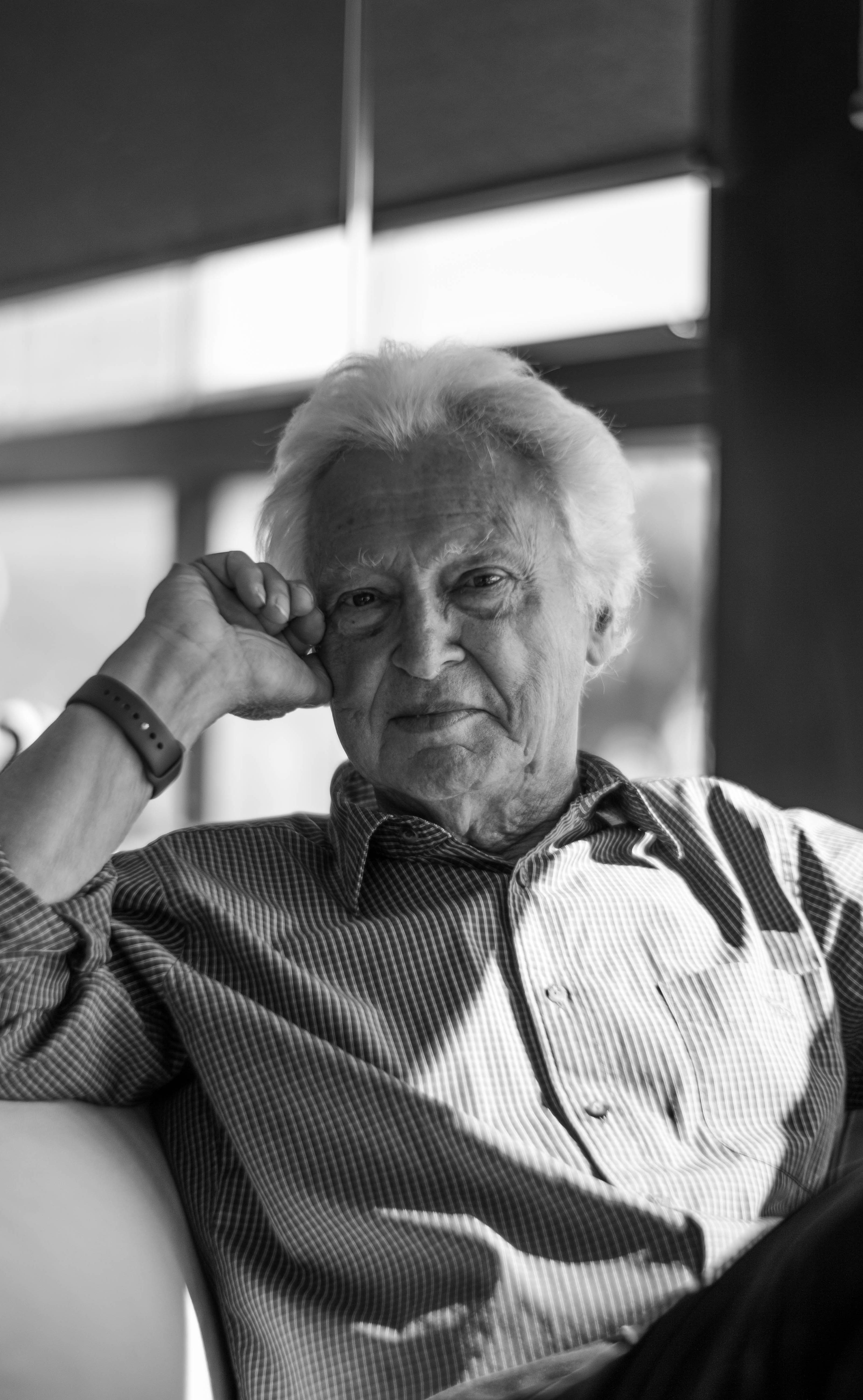
Comments powered by CComment